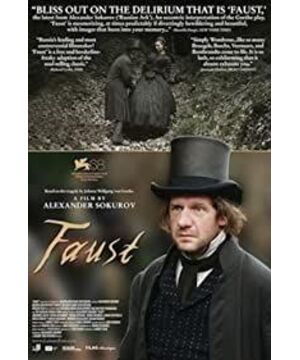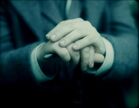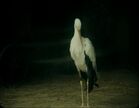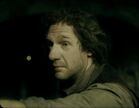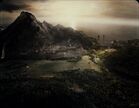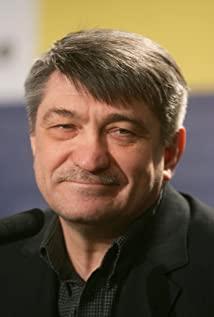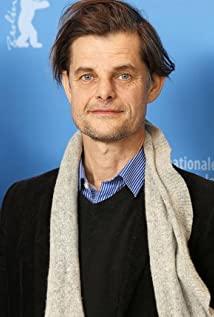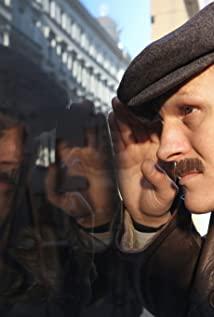Unexpectedly, the whole play ends in the scene where Faust is exiled in a place of nothingness. Maybe that is the expression of hell? Faust in the film is not redeemed as in the original, but exiled in boundless meaninglessness. Whether the ending scene is a manifestation of hell or a symbol of human nihilism is a matter of opinion.
It happened that I saw an explanation of John Milton's "Paradise Lost" in an open class two days ago. The description of hell in the first volume is somewhat similar to the atmosphere at the end of this film, so I didn't watch the movie. Consciously put most of his attention on Mephistopheles.
Before the birth of Christianity, various versions of legends about Satan rebelling against God and being thrown into hell have been circulating for hundreds of years. This character is known as a demon, and at the same time, Satan/Lucifer is actually a symbol of rational spirit. The legends of the syllabus also hint at the tension between rationalist ideology and traditional myths of transcendence.
I think that Faust in the film is not subject to scientific knowledge, but the exclusivity of the context of science. He is entangled with Mephistopheles. The collision between the religious belief system and the exclusive rational scientific spirit created a crack. Satan, as an anthropomorphic symbol of extreme rationality, must be close to him and always tempt Faust, who is in a crisis of nihilism.
There is no doubt that Faust is entangled, and if he chooses to surrender to Mephistopheles in the end, it is reasonable, and in the film - my personal interpretation is that the final scene should not be hell, his resistance to the embrace of totalitarianism is also Still haven't found the meaning of existence, and then lost in the wilderness like a wandering soul. Compared with the author's good expectations reflected in the original redemption version, perhaps the interpretation of this film is more realistic - we are swaying, replacing the heartbeat with pulsating stimulation , perhaps yearning for some sort of order, but the romanticized concept of freedom makes us choose to live as if there is no tomorrow.
Below is an excerpt from Paradise Lost:
By John Milton (translated by Zhu Wei):
"In an instant, he exhausted the eyes of an angel to look at the end of the world, but he saw the sad wind filled the air, the vast expanse, surrounded him in all directions was a terrifying dungeon, like a fiery furnace, but the flame did not shine, just gray A piece of the world, where the misery, the tragic situation and the mournful shadows can be discerned.
Peace and rest never stop there, hope is everywhere but not there.
Only endless misery followed closely with the ever-burning brimstone, and the unquenchable flames rolled toward them like a flood.
This place is the prison that the God of Justice has prepared for those rebels and set up a prison for them in the wilderness beyond the sky.
That place is three times as far away from the light of the gods and the celestial realms as it is from the celestial pole to the center. "
View more about Faust reviews


